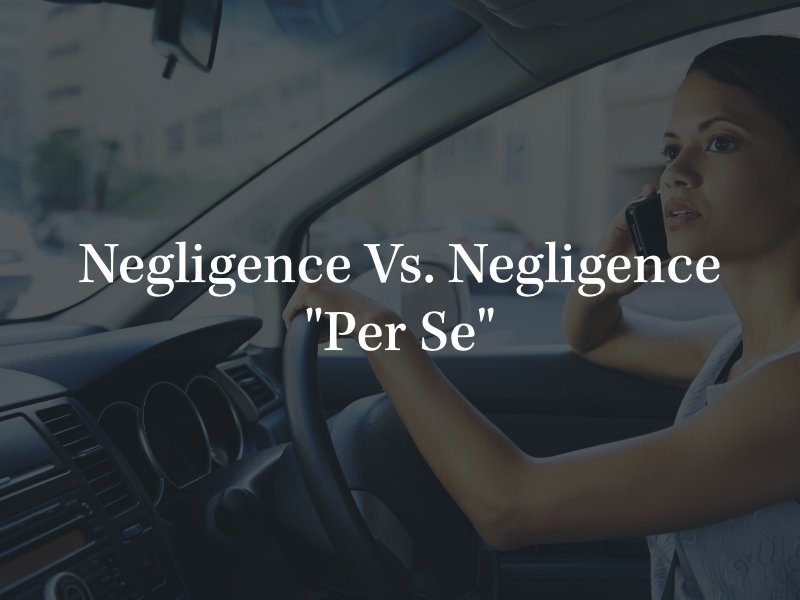In personal injury law, there is a difference between “negligence” and “negligence per se.” On the surface, the difference between the two of these terms may not seem to matter much, but it really does when it comes to how a case proceeds forward. Here, we want to define and discuss both negligence and negligence per se in terms of personal injury law in Pennsylvania.
Defining Negligence in a Pennsylvania Personal Injury Case
When most people think of negligence in terms of personal injury, they think of this ordinary “negligence,” but even calling it ordinary negligence is oversimplifying the matter. There are specific elements that must be in place in order for an injury victim to recover compensation from an at-fault party through a civil claim.
These elements include showing that there was a duty of care owed by the defendant to the injury victim at the time the incident occurred and that the defendant somehow breached this duty of care. The “breach of duty” element of these cases is what people think of as the negligent action that caused the injury, but even showing that a breach of duty occurred is not enough. Another element of these claims is showing that the breach of duty directly or indirectly caused the injuries in question and that the victim suffered monetary losses as a result.
For example, let us suppose that a driver on the roadway was adjusting their car stereo while also driving their vehicle, and it can be shown that the distraction caused by filming the video caused the incident and the injuries. This would be a situation where the elements of negligence would need to be proven in order for a victim to recover compensation.
How Is Negligence Per Se Different From Negligence?
Negligence is different from “negligence per se” in that negligence per se allows jurors to presume that the alleged negligent party breached their duty of care without having to go through all of the elements of proving the breach. However, this presumption is not allowed unless it can be shown that the at-fault party committed a violation of law that was designed to protect the public and that the law was designed to prevent the type of injury caused to the victim.
In simpler terms, negligence per se is claimed in situations where the injury occurred due to a violation of law by the defendant, and there is no question about whether or not the defendant actually violated the law.
Continuing with the example above, let us suppose that, instead of adjusting their car stereo, the driver in question was impaired by alcohol and that their blood alcohol content level was over the legal limit. Drunk driving laws in Pennsylvania are in place to help prevent accidents and protect drivers and passengers from injury. Because the driver was operating under the influence of alcohol, jurors would likely be able to presume that the driver breached their duty of care.
Working With an Attorney
If you have any questions about the difference between negligence and negligence per se in a Pennsylvania personal injury case, we encourage you to contact a Philadelphia personal injury attorney as soon as possible. When you have a lawyer working on your case, they will help you determine the best steps moving forward for your particular injury claim.
